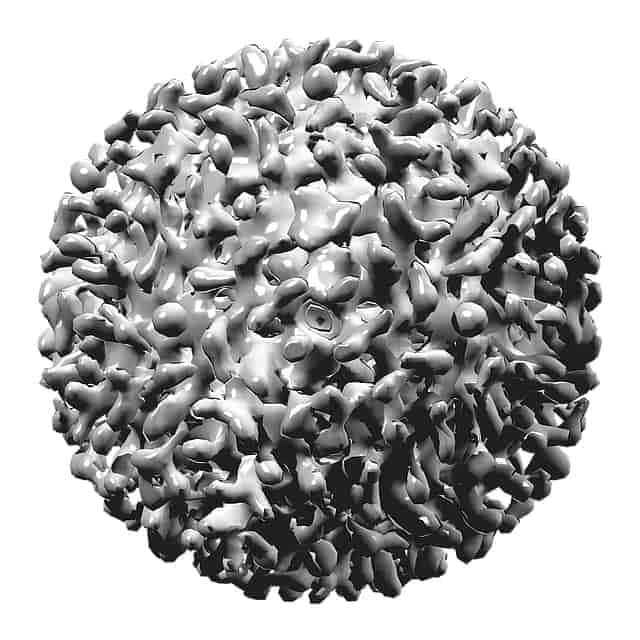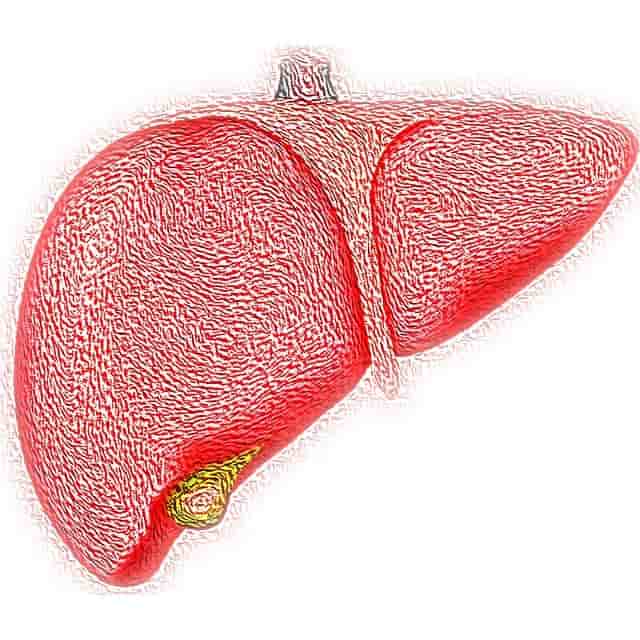Address
Dhaka-1210
Address
Dhaka-1210
Treatment of Hepatitis B: Hepatitis B is a deadly infectious disease that attacks the liver or the liver The disease is triggered by a virus called hepatitis B (HBV) Children are more likely to be infected with the disease. Statistics show that 2 to 5 million babies born to Hepatitis B virus are infected every year on earth and subsequently they are the cause of the disease.
Many times, no symptoms appear at the beginning of the infection. However, in some cases, nausea, fatigue, yellowing of the skin, yellowing of urine, abdominal pain, etc. may be noticed. Usually, these symptoms can last for weeks. After infection, it takes a long time (30 to 180 days) for symptoms to manifest. Approximately 90 percent of all patients affected at birth suffer from chronic or chronic hepatitis B, whereas in patients older than 5 years the prevalence rate is only 10 percent. In patients with chronic hepatitis B, most of the time there are no symptoms but it can lead to cirrhosis and liver cancer.
In Bangladesh, 5 percent of the total population is a long-term carrier of the hepatitis B virus and 20 percent of them can die from liver cancer or cirrhosis.
The virus is usually transmitted through blood or body fluids. In areas where the prevalence of the disease is high, children can usually be infected with the blood of another infected person at birth or in childhood. But in areas where the incidence of the disease is less, drug use and unprotected sex are the main causes of the disease.


Also, the disease can be caused by various reasons such as blood transfusions, dialysis, living together with the infected person, frequent visits to places where infection rate is high. Hepatitis B is 100 times more contagious than AIDS, and every year more people die from AIDS because of Hepatitis B.
In the 1980s, a significant number of people were infected with tattoos and acupuncture, although such means are still safe. The disease does not spread by holding hands, playing in the same container, coaxing, kissing, sneezing, coughing, or drinking alcoholic beverages. The diagnosis can be made 30 to 60 days after infection. The disease is usually diagnosed by a virus and antibody located in the blood.
In 1982 the disease was prevented by vaccination. It is best to take the vaccine on the first day of birth. For complete protection, 2 to 3 doses should be taken. In 95% of cases this annotation works well.
About one-third of the world’s population is infected with the disease at some point in their lifetime, with 24 to 35 million people infected with chronic infections. More than 700,000 people die from the disease every year in this world. About three million of them die of liver cancer. At present, the disease is most commonly seen in East Asia and Africa. In these areas, between 1 and 10 percent of adults suffer from chronic infections.
Hepatitis B infection can be generally divided into two groups. Such as acute or acute infections, and chronic or chronic infections. About 90 percent of the cases in adults are cured without any problems. In this case, the infected person’s body produces antibodies to Treatment of hepatitis B virus, which protects him from infection later. But if the virus has been in the blood for more than 6 months, it is called chronic hepatitis. About 90% of the most commonly infected children and 5% to 10% of adults suffer from chronic hepatitis.
Symptoms and symptoms begin to appear two to three months after hepatitis B virus infection. The symptoms and symptoms of hepatitis B can range from mild to severe. Symptoms of acute infection of the hepatitis B virus are as follows:(we need to be aware of the Treatment of hepatitis B)
Generally, one-third of people do not understand any of the signs and symptoms, one-third of people have headaches, nausea and fever, and one-third of people suffer from hunger, jaundice, fever, diarrhea, and vomiting.


The disease usually spreads in two ways, transferring or transmitting the virus.
Generally, the disease can spread to other people with hepatitis B, which can spread the disease due to contact with fluids and skin, but can also spread to any type of sexual behavior, such as kissing, sexual intercourse, sexual activity in the face, homosexuality, etc. The risk of infecting a baby from an infected mother is, on the other hand, much lower than the risk of an infected mother being infected. It can easily spread from one family member to another. It is not easily detectable and is 100 times more contagious than HIV AIDS.
Treatment of hepatitis B: If the primary symptom of the disease is suspected, a blood test requires identification of the hepatitis B virus. Generally, hepatitis B surface antigen in blood, hepatitis B antigen, hepatitis B IgM core antigen, as well as liver enzyme levels are more likely to be confirmed by infection with hepatitis B. To confirm chronic or long-term hepatitis B, long-term presence of hepatitis B surface antigen in the blood, hepatitis B core IgG antigen, hepatitis E antigen and liver enzyme need to be examined.
Treatment of hepatitis B: Hundreds of successful hepatitis B treatments have not yet been discovered. In many cases, the researchers claim that some of the newly invented drugs are yielding good results, but no reliable drugs have yet come into the market. Before the treatment of a hepatitis B patient, the virus DNA must be examined. After the DNA test is positive, the specialist physician can confirm whether the affected patient has Portal Hypertension or any other critical problem, whether he has fibrosis or cirrhosis and whether there is any change in the esophageal varix.
Usually, with the change of the liver, the esophageal varicose changes, and with the constant pressure of the blood, the varicose can be torn off and the patient’s nose, mouth and blood can reach the patient’s death. In the advanced world, the treatment of varicose forms a kind of artificial blood vessel, and the blood vessel flows directly to the vortex from the void part of the liver. But as an alternative to this, esophageal varix ligation or EVL method is introduced in our country and the cost is relatively low. It is possible to do 3 to 4 varicose ligations for only 10 to 12 thousand rupees. The specialist physician will then select the therapy for the patient, knowing if the patient has diabetes or any other health problem.
Hepatitis B treatment now has food tablets that are not very expensive. Effective treatment is interferon, pegylated interferon alpha 2-b or pegasi and the adjuvant medicine is telbivudine, lamivudine, adefovir.
Many people now leave Bangladesh, Thailand, India or Bangkok for better treatment. In our country, microbiological research and the laboratories available for such diagnosis are not sufficient, so many patients have to send blood for PCR examination to India or Singapore. Although these tests are taking place in some labs in Bangladesh, they are not able to accurately test them. Despite this obstacle, doctors are doing better than other countries in treating Hepatitis B in Bangladesh. It is advisable to seek the advice of an experienced physician as soon as the symptoms become apparent. No effective treatment has been discovered so far. Regular treatment does not completely heal but can survive well. The patient should be kept at rest.
Treatment of Hepatitis B vaccine can prevent the onset of hepatitis B virus ie liver or liver cancer caused by Hepatitis B virus and prevent liver or liver damage. Hepatitis B vaccine can be given along with other vaccines. Generally, the hepatitis B vaccine provides lifetime protection.
Newborns with Hepatitis B may be infected by the mother. In addition, the carriers can spread the disease from infant to healthy child through teething during childhood and adolescence. In the same way, the nose can also be infected by piercing through the needle. Again, it can be infected with crude syringes and needles and during hair cutting.
World Hepatitis Day is celebrated on 28 July. The day is also celebrated in other countries of the world, including meetings and seminars on ways to get rid of various liver diseases and diseases.
Check out HBsAg for yourself and your family today. If not yet infected, take the anti-Hepatitis B vaccine very quickly. Prevention is the only way to prevent hepatitis B infection.
Related Topic:
hepatitis a b c, hepatitis b cure, hepatitis b vaccine schedule, hepatitis B, hepatitis b test, hepatitis b antibody, hepatitis B patient, hepatitis B causes, hepatitis B symptom, hepatitis B vaccine, hepatitis c virus, Treatment of Hepatitis B